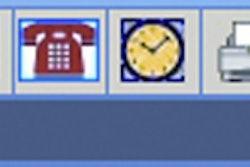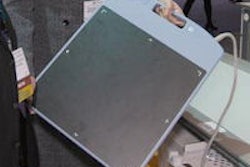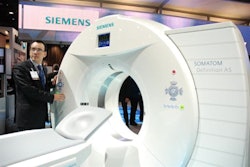PARIS - Earlier this month, France went online with the long-awaited Dossier Médical Personnel (DMP) program by opening a portal to enable physicians in five pilot regions to create electronic health records (EHRs) for patients.
Up to 2 million records are expected to be opened before April 2011, when all French citizens will be invited to visit the portal and create or consult a personal file using any Web browser.
Not mandatory and free to all, a typical DMP record contains a patient's medical summary, history, recent prescriptions, physician reports, discharge reports, and reports from exams and lab analyses, including embedded medical images.
But for the moment, "the DMP is not DICOM compatible," according to Jean-Yves Robin, the director of the program at ASIP Santé, the Paris-based agency coordinating the program.
He explained that doctors' offices are a critical source for compiling patient records for this first generation of the DMP system, but in terms of sheer volume, radiology and clinical labs overwhelmingly generate the largest medical files.
A framework including DICOM is being developed to integrate appropriate medical imaging in a second-generation DMP, he said. Meanwhile, patients are able to upload JPEGs and PDFs to supplement their file, for example, adding weekly blood glucose monitoring charts, or the image of a baby's face from an ultrasound scan.
Patients control access to their DMP record, as well as the content, including a controversial right to mask health information. This right was negotiated over the objections of physicians by patient-rights associations fearing the records could be consulted by employers, banks, or insurers.
In an emergency, a physician may invoke a "glass-breaking provision" to obtain access to hidden records, but he or she faces a compulsory review to justify the action.
The French Health Ministry has put a priority on creating DMPs that can be shared among caregivers for heavy users of the healthcare system.
Cancer is the first target, with the DMP integrating the Dossier Communicant de Cancérologie deployed in 2007 across 17 regions of the country to coordinate multidisciplinary care.
Other targeted populations are patients with rare diseases, as well as those with a more general condition of "dependence" due to chronic disease and comorbidities.
Putting the DMP program online vaults France to the leading edge of e-health worldwide, placing it at the head of a class that includes countries such as Germany and the U.K. with similar populations and challenges, and closely following advanced implementations of e-health in Denmark and Canada, as well as in Andalusia, Spain.
The Lazarus of European health information programs, the French DMP was launched with great bravura in 2004, only to be pronounced clinically dead by a joint commission of three government ministries in 2008.
Less than a year later, the DMP was revived, thanks to a strategic shift from a top-down approach to one that favors collaboration with leading companies providing software to general practitioners.
The DMP framework relies heavily on integration profiles developed by Integrating the Healthcare Enterprise (IHE) and HL7.
At full deployment in 2012 the DMP is expected to cost France one euro per year, per record, according to ASIP Santé.
By John Brosky
AuntMinnie.com contributing writer
January 21, 2011
Related Reading
French government mulls nationwide PACS initiative, September 14, 2010
Siemens to sell Microsoft HealthVault in Germany, February 1, 2010
Copyright © 2011 AuntMinnie.com



















